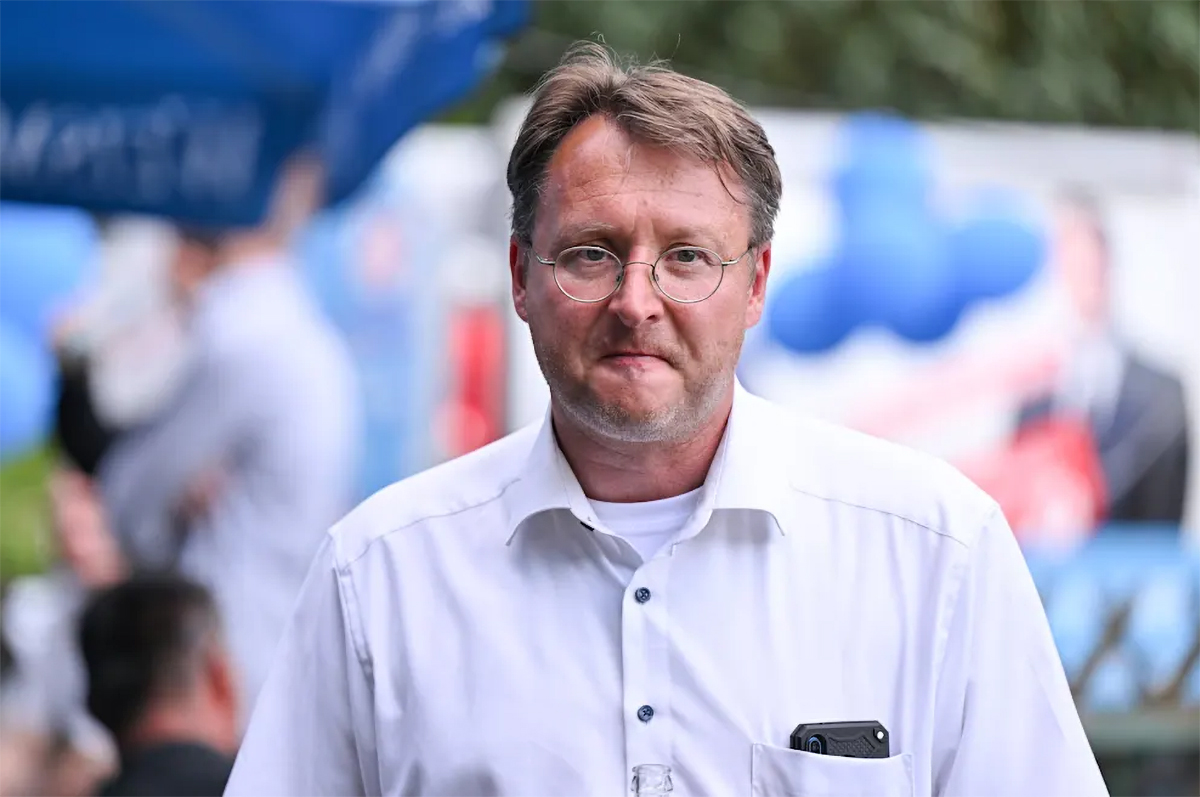Alternative for Deutschland (AfD) candidate Robert Sesselmann won the second round of elections in Sonneberg, Thuringia, on Sunday, becoming the first politician from the party to hold a district leadership post. The win is being touted as a historic victory for the party at a time when it is seeing record support from the population and routinely polling between 19 and 20 percent in nationwide surveys.
Sesselmann defeated the incumbent CDU candidate Jürgen Köpper by a convincing margin.
Preliminary election results show Sesselmann with 52.8 percent of the vote and Köpper with 47.2 percent, reports Germany’s Focus magazine.
Although he did not achieve an absolute majority in the first round, Sesselmann won 47 percent of the votes, making him the strong favorite to win in the second round.
The win also comes despite a cross-party coalition of Greens, Free Democrats (FDP), the Left party, and the Social Democrats (SPD) endorsing the CDU candidate and urging their voters to back him against the AfD. The German press also made the election a national issue, warning of a “threat against democracy” should the AfD win.
In his campaign, the AfD candidate promised voters that he would tackle high inflation and the growing problem of immigration. The rural and conservative population of Germany is increasingly dissatisfied with the current leadership, which could lead to a national rise of the AfD.
The AfD celebrated the win on Twitter, writing: “Sonneberg experienced its blue miracle: Robert Sesselmann is the first AfD district administrator in Germany. Congratulations and thanks to all supporters and voters – they all made history today!”
German newspaper Junge Freiheit describes the victory as a “political earthquake,” but the German political establishment is reacting with concern and threats.
Green party leader Ricarda Lang called the result of the district election “disturbing.” She stated: “Now at the latest is the time when – despite all the disputes on the matter – all democratic forces must defend democracy together.”
Schleswig-Holstein SPD member of the Bundestag Ralf Stegner claimed the election had similarities with the Third Reich, writing, “Ninety years after the seizure of power and the beginning of the Nazi dictatorship, the district of Sonneberg in southern Thuringia elected a right-wing extremist as district administrator.”
As Remix News recently reported, AfD soared to an unprecedented 20 percent in a recent INSA poll, likely driven by a broad range of factors such as Germany’s significant inflation and economic crisis, as well as the migration crisis. The INSA poll shows that 34 percent of voters describe themselves as “angry citizens,” and among AfD supporters, 70 percent describe themselves this way.






